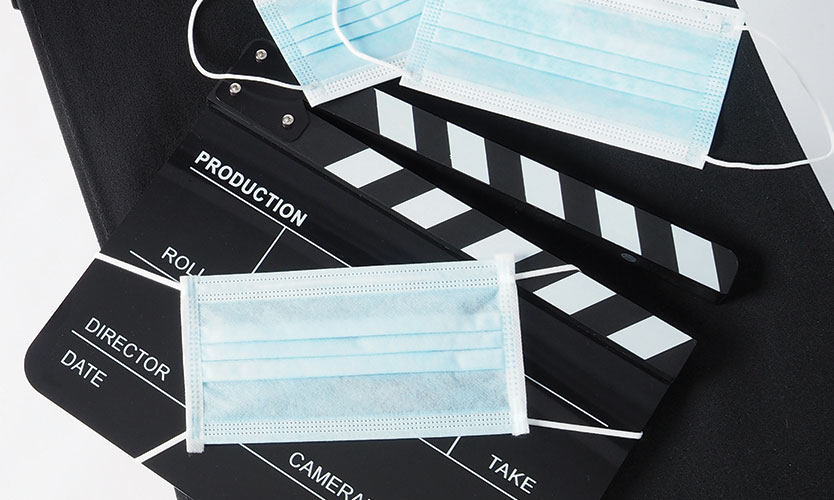Coronavirus variants, such as delta and omicron, have dealt secondary blows to the film industry, just as they have affected wider society.
Numerous productions were reportedly paused — some indefinitely.
In response, the film and television entertainment industry enhanced its COVID-19 protocols.
On Jan. 25, the Screen Actors Guild-American Federation of Television and Radio Artists issued notice that all “return to work” protocols would be extended to Feb. 13, daily testing would be in place for actors and other front-line workers, and upgraded masks — such as N95 masks, which are usually worn by health care workers — would be required. The document also urged booster vaccinations for studio staff.
“As performers who often cannot be masked or physically distanced, SAG-AFTRA members are among the most vulnerable people on set, making the need to remain vigilant and flexible in the face of this unprecedented surge of crucial importance,” the organization said in a statement on the new guidelines.
“This isn’t going away soon,” said Lori Vitagliano, associate vice president and account executive of the entertainment group at Lockton Cos. LLC in Los Angeles. “I am sure this is going to last for a long time. … The production companies just have to accept it.”
Can the industry survive? Experts say it depends.
Smaller production companies are finding it “harder to navigate this world than the deep-pocket film studios,” said Aaron Baum, vice president of the entertainment and media industry practice group at Marsh LLC in Chicago.



